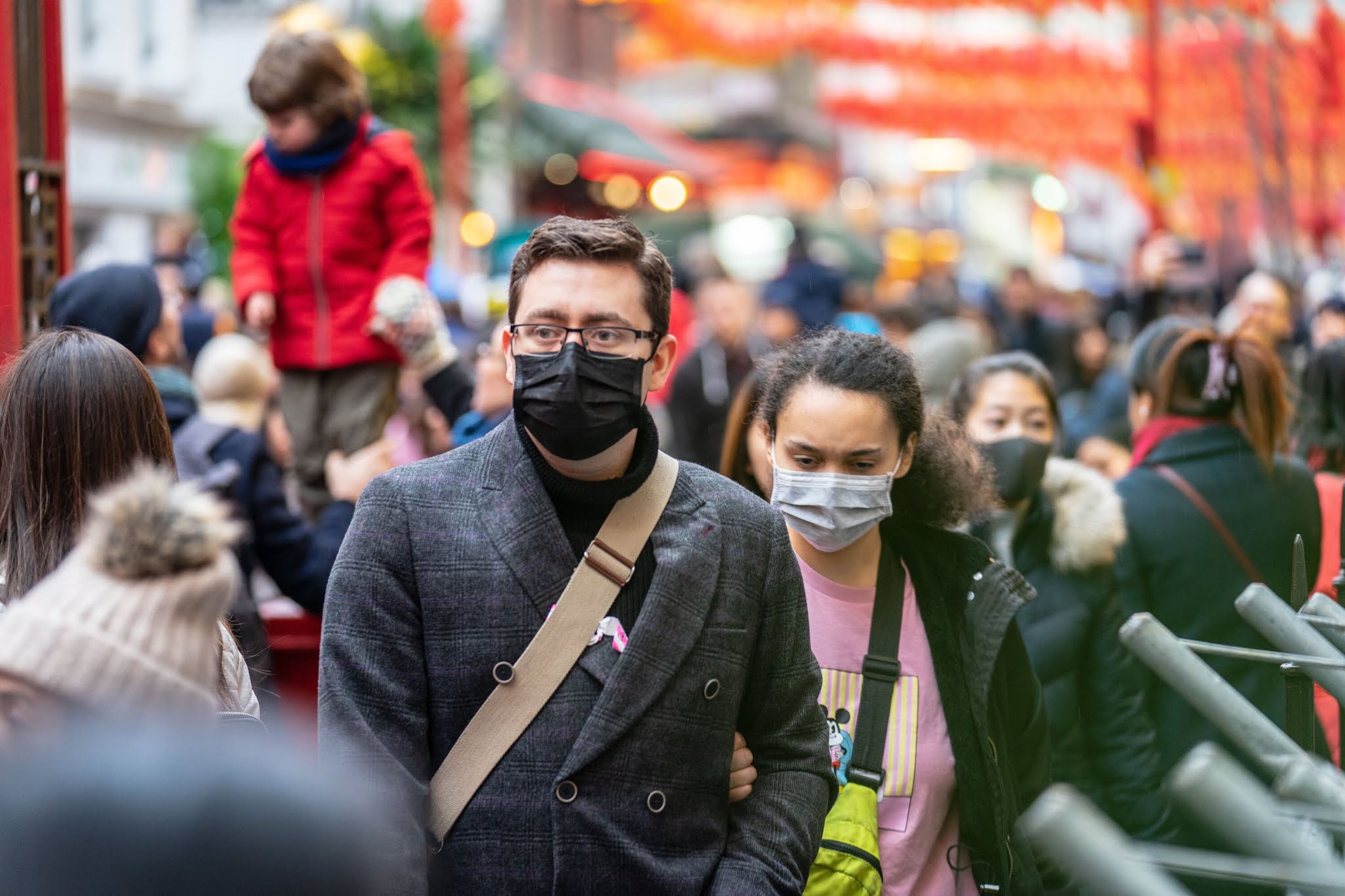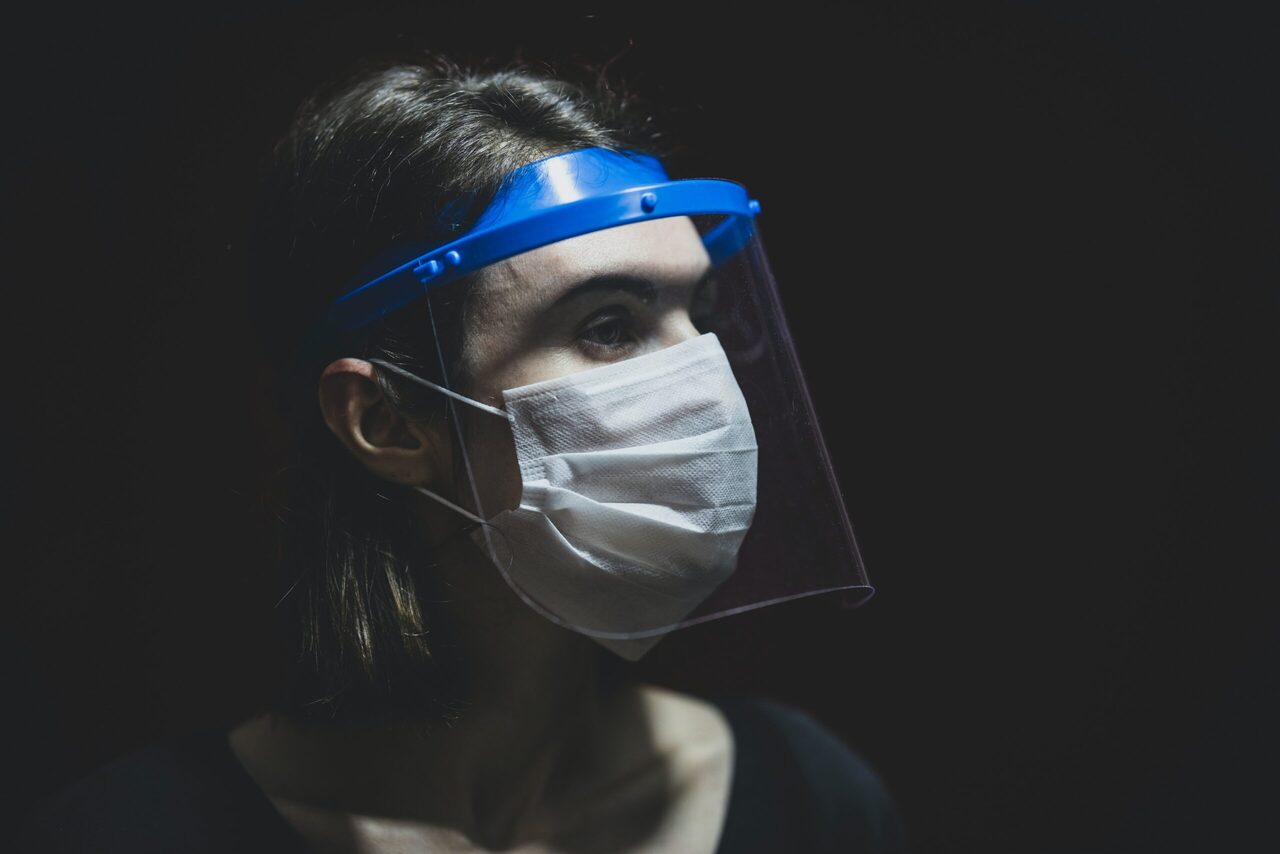By now, I never leave the house without a mask. I even stash extras in my car, and reception I even have a good sort of coverings in several patterns and colors. Even so, I've never considered doubling up and wearing two masks directly — until I watched the Presidential Inauguration on January 20.
Like me, you'll have spotted several attendees and key speakers — including poet Amanda Gorman — wearing not one, but two masks. the primary layer was often a white mask (that seemed like it'd be disposable), and therefore the top layer was a covering. Was this a fashion statement? Extra protection against what seemed like a chilly winter day? Or, with new, potentially more contagious strains of COVID-19 beginning to spread, should we be strengthening our mask game?
Some countries are changing their mask requirements with an eye fixed on combating the new COVID-19 variants — though they are not explicitly recommending double-masking. Germany is now requiring that folks wear medical-grade face masks (like N95s or surgical masks) on the transportation system or to grocery stores, reports The Washington Post. France recently followed suit, mandating that folks must wear medical-grade masks or fabric masks with "Category 1" specifications, which are proven to dam a minimum of 90% of particles, publicly places, consistent with CNN. meaning many cloth masks won't cut it in these countries. "We aren't questioning the masks spent to now," Daniel Camus, a member of the High Council of Public Health in France, told France's public broadcaster. "But as we do not have any new weapons against the new strains, the sole thing we will do is to enhance the weapons we have already got ."
To be clear: nobody is saying cloth masks don't work at all. they are doing offer significant protection against the spread of COVID-19. And within the U.S., the Centers for Disease Control and Prevention recommendations around wearing face masks haven't changed: Wear a mask whenever you're publicly or around anyone who's not a member of your household
The CDC isn't yet recommending wasting two face masks. The agency does, however, recommend wearing a non-medical mask that's made from two to 3 layers of cloth and has inner filter pockets. And if your favorite mask has one layer, or if the material is getting thin (because you've washed it many times), Abisola Olulade, MD, a family practice physician based in San Diego, says that wearing two masks directly could be a sensible strategy.
"If you've got a mask that’s flat, flimsy, falling apart, frayed, or if you set it up to a light-weight and you see light coming through it, it'd be helpful to wear another one on top of it," she says. As long as wearing two doesn't affect your breathing capabilities or fit painfully tightly, it could offer much-needed additional protection — especially if you're in any enclosed areas where social distancing might not be possible, like taxis, grocery stores, or hair salons. If she had to settle on, Dr. Olulade says that for now, she'd recommend wearing one effective, two- or three-layered mask that's been approved by the CDC over wearing two, single-layered or non-approved masks. But altogether, goodbye because it doesn't impair your breathing, there's nothing wrong with doubling up — and doing so may offer a touch more protection.
Worth noting: Unlike France or Germany, for soon, the CDC isn't recommending that everybody wear medical-grade masks publicly — for an honest reason. "Healthcare workers have a better risk of exposure and that they have more frequent exposure, then the guidance now's you preserve [medical-grade masks] for healthcare workers because if people take over surgical masks it's going to limit access to PPE," Dr. Olulade explains.
These mask guidelines may change, as they need before. regardless of what percentage masks you're wearing, though, it's still important to socially distance yourself from others, wash your hands often, and stay home and avoid public places the maximum amount as possible. we cannot be wearing masks forever — but we'll be wearing them for tons longer if we do not still take the precautions that we all know work.







0 Comments